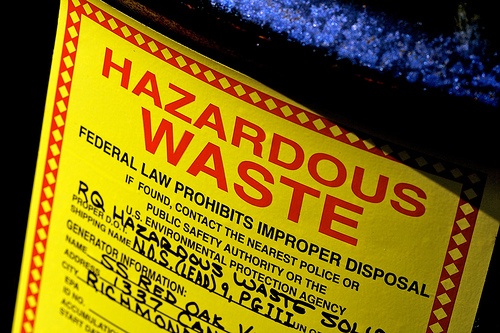The Trump Administration has issued its budget proposal for federal Fiscal Year (FY) 2026 (October 1, 2025 through September 30, 2026), including a 54% cut in the Environmental Protection Agency (EPA) budget, from $9.1 billion in FY 2025, to $4.16 billion for FY 2026. Many of the cuts apply to grant programs, and the proposal would cut staffing by 9%, from 14,130 full-time-equivalent employees (FTE) to 12,856. Readers should note that these cuts are comparable to those proposed by President Trump during his first term; EPA’s actual annual budget depends on that adopted by Congress (or a continuing resolution in lieu of an adopted budget). The remainder of this note summarizes EPA’s proposed FY2026 budget, including proposed reductions, drawn from EPA’s “Budget in Brief” (68 pages) and “Justification of Appropriation Estimates” (736 pages).
Audit, Compliance and Risk Blog
Tags: EPA, RCRA, tsca, Clean Air Act, Environmental Policy, Climate, EPA Regulations, EPA Standards, Trump, Trump Administration, Climate Reporting
Federal laws (commonly referred to as RCRA, after the Resource Conservation and Recovery Act of 1976) provide comprehensive management requirements for parties involved in hazardous waste management, from “cradle to grave” covering generators, transporters, and offsite management facilities. Among these many provisions are requirements that “large quantity generators (LQGs)” submit biennial reports to the Environmental Protection Agency (EPA) or delegated states in March of every even-numbered year. March 2024 is the next such deadline, so now is a good time to review biennial report requirements to ensure compliance at qualifying facilities.
Read MoreTags: EPA, RCRA, Hazardous Waste, AHW, LQG
EPA proposes management requirements for equipment containing HFCs
Posted by Jon Elliott on Mon, Nov 06, 2023
On October 19, 2023, the US Environmental Protection Agency (EPA) proposed to establish requirements for the management of hydrofluorocarbons (HFCs) potentially released from equipment during maintenance or other services, and manage spent HFCs.. These rules support US efforts to implement the 2016 Kigali Amendment to the United Nations-sponsored Montreal Protocol on Substances that Deplete the Ozone Layer (which I wrote about HERE), and codified in the December 2020 coronavirus relief bill (American Innovation and Manufacturing Act of 2020 (AIM Act; which included dozens of unrelated provisions within its 5,593 pages). EPA adopted its over-arching HFC phase-down rules in September 2021 (I wrote about them HERE), and continues to adjust and refine their requirements. The remainder of this note summarizes EPA’s new proposal, which would impose requirements using authority under the Clean Air Act (CAA) and the Resource Conservation and Recovery Act (RCRA).
Read MoreTags: EPA, RCRA, Environment, HFCs, Environmental Policy, CCA, environmental protection, CFC
EPA to reconsider management of containers that held hazardous waste
Posted by Jon Elliott on Tue, Aug 22, 2023
The Environmental Protection Agency (EPA) applies its authority under the Resource Conservation and Recovery Act (RCRA) to set national requirements for containers – such as drums – that may be contaminated after use to accumulate hazardous chemicals and wastes. These rules include the “empty container rule” first promulgated in 1980. On August 11, 2023 EPA published in the Federal Register a “Used Drum Management and Reconditioning Advance Notice of Proposed Rulemaking” (ANPRM), setting forth the agency’s thinking about existing container management requirements and possible enhancements and regulatory and non-regulatory alternatives to its existing approaches. The rest of this note summarizes EPA’s ruminations, which may lead to a formal rulemaking.
Read MoreTags: EPA, RCRA, Hazardous Waste
EPA clarifies management requirements for waste lithium-ion batteries
Posted by Jon Elliott on Tue, Jul 18, 2023
On May 24, 2023, the Environmental Protection Agency (EPA) released a memo (“Lithium Battery Recycling Regulatory Status and Frequently Asked Questions”) clarifying regulatory requirements for spent lithium-ion batteries, under the Resource Conservation and Recovery Act (RCRA). EPA’s memo acknowledges that lithium-ion batteries power our electronics, lawnmowers, e-scooters, electric bicycles, and rapidly increasing numbers of electric cars, so numbers of spent batteries are also growing rapidly. In this memo, EPA evaluates RCRA’s applicability to lithium-ion batteries, particularly:
- Universal waste handling provisions
- Hazardous waste recycling provisions
- Other RCRA requirements
Based on its analysis, EPA offers clarification that most waste lithium-ion batteries are “likely” hazardous waste, which can be managed under universal waste handling standards until they reach a destination facility for recycling or discard. The rest of this note summarizes information in EPA’s memo.
Read MoreTags: EPA, RCRA, Hazardous Waste
California Adopts Universal Wastes Rules For Photovoltaics
Posted by Jon Elliott on Mon, Nov 23, 2020
California’s Department of Toxic Substances Control (DTSC) established waste management rules for solar photovoltaic (PV) modules, to become effective on January 1, 2021. These rules are adopted under the state Hazardous Waste Control Law (HWCL), applying “universal waste” authority permissible under the federal Resource Conservation and Recovery Act (RCRA) and Environmental Protection Agency (EPA) RCRA regulations. EPA defines five universal waste categories, and also allows states to define additional categories (I wrote about this HERE). The remainder of today’s blog summarizes these universal waste PV requirements (which include dozens of revisions to proposed state rules I discussed HERE).
Read MoreTags: EPA, RCRA, Environment, HWCL, Photovoltaics, DTSC, PV Wastes
Study compares environmental enforcement during Trump administration with predecessors
Posted by Jon Elliott on Wed, Oct 28, 2020
I’ve written numerous times in this space about specific efforts by the Trump administration to reduce environmental regulation and enforcement. A new study from the University of Michigan Law School quantifies reductions in the administration’s criminal enforcement levels. The report is part of the school’s “Environmental Crimes Project,” and includes the first two years of the Trump Administration as the latest in a 14-year series of federal environmental enforcement data. Readers should note that federal criminal environmental enforcement is brought by the US Department of Justice (DOJ) on behalf of the US Environmental Protection Agency (EPA); EPA and delegated state agencies bring their own civil cases, and most state criminal enforcement is brought by state prosecutors on behalf of state regulatory agencies (I summarized agency enforcement in the first year of the Trump administration HERE).
Read MoreTags: OSHA, EPA, RCRA, CAA, DOJ, CWA, Environment, ESA, SWMA
Supreme Court decision provides Superfund Responsible Parties with some relief
Posted by Jon Elliott on Mon, Jul 27, 2020
Forty years ago, the federal “Superfund” law -- Comprehensive Environmental Response, Compensation, and Liability Act of 1980 (CERCLA) – was enacted to provide legal requirements and procedural methodologies to speed identification and cleanup of contamination. Today, cleanups continue and the requirements and procedures continue to evolve. In April, the United States Supreme Court issued its latest decision interpreting a Superfund provision, this one defining clearer limitations on when the owners of contaminated land can force Responsible Parties for that contamination to pay for cleanup more extensive (and expensive) than cleanup ordered by the Environmental Protection Agency (EPA). The case is Atlantic Richfield Company v. Christian.
Read MoreTags: EPA, RCRA, clean water, Supreme Court, Superfund law, CERCLA, The Montana Supreme Court
Chemical Safety Board Proposes Accident Reporting Regulations
Posted by Jon Elliott on Tue, Jan 14, 2020
The federal Chemical Safety and Hazard Investigation Board – which usually refers to itself as the Chemical Safety Board or CSB – began operations in 1998. CSB conducts independent investigations of major chemical accidents, issues accident-specific findings, and offers specific or general recommendations for improved chemical handling and regulation (I wrote about one set of proposals here). Since its authorization in the 1990 Clean Air Act (CAA) Amendments, CSB has also had authority to establish chemical accident reporting regulations.
Read MoreTags: Environmental risks, Environmental, Hazcom, RCRA, CAA, CSB
The Resource Conservation and Recovery Act (RCRA) assigns the US Environmental Protection Agency (EPA) to define and then regulate “hazardous wastes.” RCRA provides EPA considerable discretion, and one way the agency applies that discretion is by separating hazardous wastes into categories that are subject to distinct waste management requirements. One basis for these categorizations is relative risk – since 1995, EPA has defined a limited set of lower-risk wastes as “universal wastes” subject to special rules intended to encourage recycling (40 CFR part 273).
Read MoreTags: Environmental risks, Environmental, EPA, Hazcom, RCRA






.jpg)


